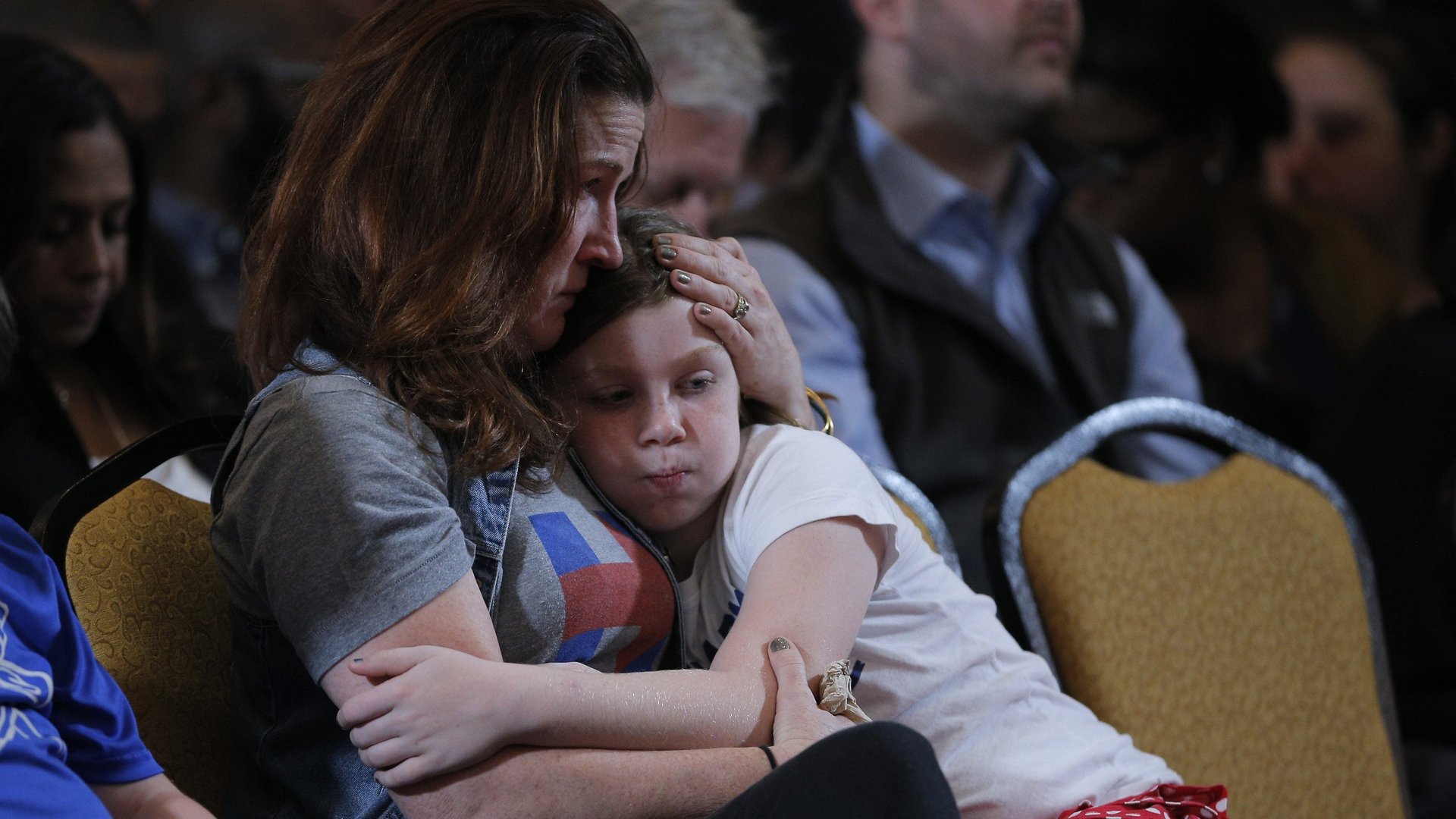After a series of terror attacks and the US election, Merriam-Webster names “surreal” the word of the year
In a year that often felt detached from reality, Merriam-Webster has named “surreal” the word of 2016.


In a year that often felt detached from reality, Merriam-Webster has named “surreal” the word of 2016.
Surreal
marked by the intense irrational reality of a dream
It’s a word often searched for “after tragedy, most notably in the days following 9/11, but it was associated with a wide variety of stories this year,” says Peter Sokolowski,the dictionary’s editor .
Lookups of surreal spiked after a series of events in Europe this year. The first surge came after the Brussels terror attack that killed at least 31 people in March. Then there was the terror attack in the French city of Nice, killing more than 80 people on July 14th. The next day there was a coup attempt in Turkey.
But the greatest search for meaning came in the aftermath of the US presidential election in November, the results of which shocked much of the world. “You can get a sense as to how people are responding to an event by the words that are looked up again and again,” says the dictionary’s associate editor Kory Stamper.
The decision apparently wasn’t an easy one, as Merriam-Webster had to postpone the announcement:
Merriam-Webster’s choice came after Dictionary.com named xenophobia its word of the year, and Oxford Dictionaries selected post-truth, reflecting how divided and politically charged the world has been in 2016.